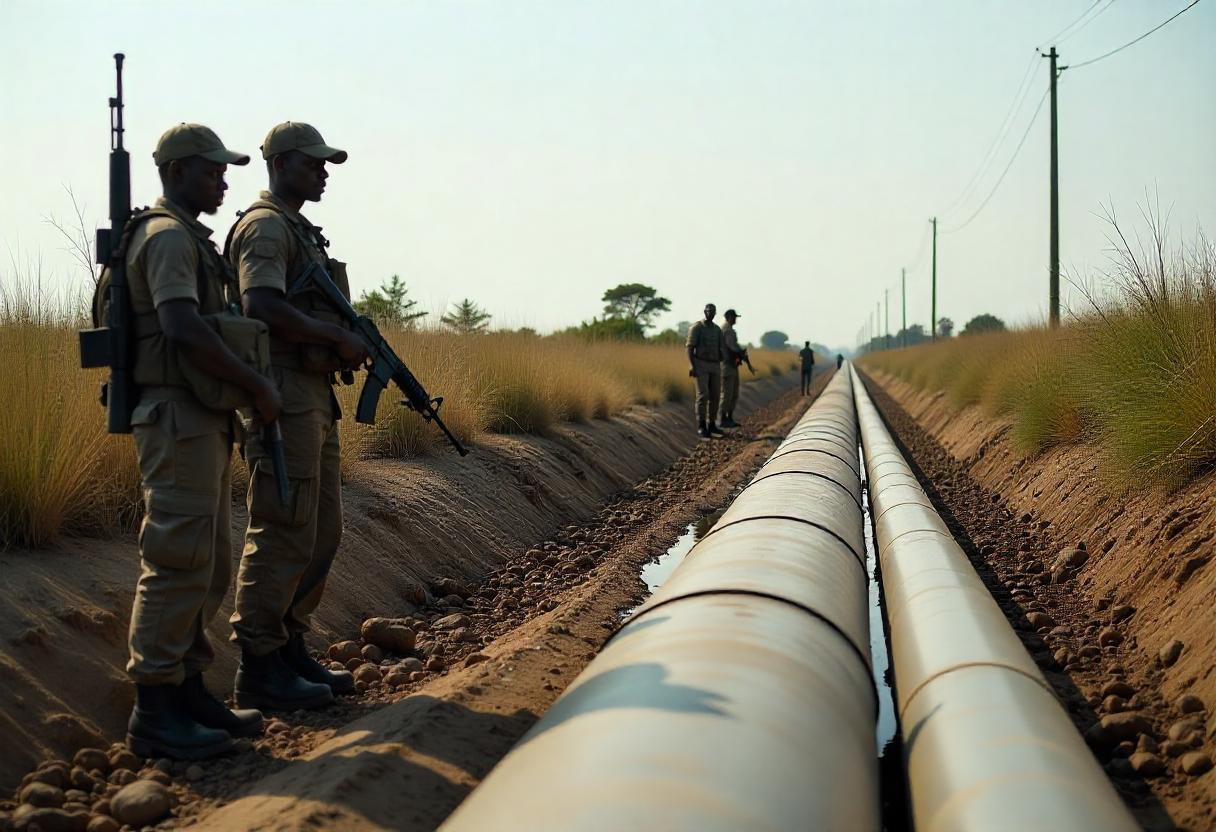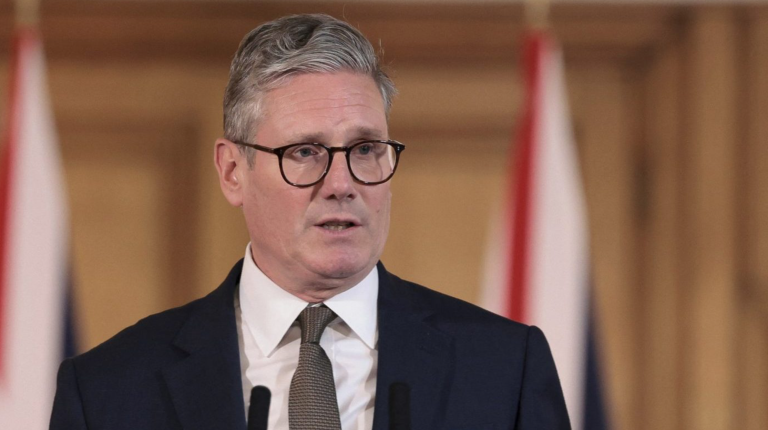
Nigeria is Africa’s largest oil producer, yet its economy remains underdeveloped and struggles to thrive, with over 40% of its population living in poverty. This stark contradiction is a classic case of Dutch Disease—a phenomenon where natural resource wealth leads to economic stagnation rather than prosperity. See Nigeria’s Persistent Poverty Traps: A Paul Collier Analysis.
Named after the Netherlands’ experience with natural gas in the 1960s, Dutch Disease describes how resource booms can weaken other economic sectors, cause currency overvaluation, and create long-term dependency on a single commodity.
We will explore:
- What is Dutch Disease? (Definition, Causes, Effects)
- How Nigeria Fell Victim to Dutch Disease
- Symptoms of Dutch Disease in Nigeria’s Economy
- Failed Attempts to Cure the Disease
- Solutions: Can Nigeria Escape the Oil Curse?
1. What is Dutch Disease?

Definition
Dutch Disease refers to the negative economic consequences of a sudden boom in natural resource exports. It leads to:
- Decline in manufacturing & agriculture
- Overvalued currency making imports cheaper than local goods
- Job losses in non-resource sectors
How It Works (The Economic Mechanism)
- Resource Boom (e.g., oil discovery) → Increased exports → Foreign currency inflows.
- Currency Appreciation → Local currency becomes stronger.
- Two Negative Effects:
- Spending Effect: Government spends oil money on imports, hurting local producers.
- Resource Movement Effect: Labor and capital shift from farming/manufacturing to oil.
Historical Example: The Netherlands (1960s)
- Discovered massive natural gas reserves in the North Sea.
- Gas exports boomed, but manufacturing collapsed due to a stronger guilder.
- Led to high unemployment and slower growth.
2. How Nigeria Fell Victim to Dutch Disease
Nigeria’s Oil Boom (1970s–Present)
- Pre-1970s: Nigeria had a diversified economy (agriculture = 60% of GDP).
- 1973 Oil Crisis: Global oil prices spiked → Nigeria’s oil revenues quadrupled.
- Government Neglect: Farming was abandoned for oil.
Key Mistakes That Worsened Dutch Disease
• Over-dependence on Oil (Currently, oil accounts for an overwhelming 90% of exports and provides over 50% of government revenue, leaving the economy vulnerable to fluctuations in global oil prices and creating an imbalanced economic structure).
• No Sovereign Wealth Fund (In stark contrast to Norway, which prudently saved and invested its oil earnings, Nigeria wasted its oil wealth on unsustainable expenditures, failing to secure a financial safety net for future generations).
• Naira Overvaluation (The Central Bank of Nigeria artificially maintained the high value of the Naira, undermining the competitiveness of local industries and stifling innovation, while creating a distorted economic environment).
3. Symptoms of Dutch Disease in Nigeria’s Economy
A. Decline of Agriculture
- Before Oil (1960): World’s largest cocoa & palm oil exporter.
- Today: Net food importer ($10+ billion yearly on rice, wheat, fish).
B. Collapse of Manufacturing
- Textiles: From 180 factories (1980s) to less than 25 today.
- Steel: Ajaokuta Steel Plant (built in 1979) never functioned fully.
C. Overvalued Naira & Import Addiction
- Black Market Crisis: Official rate (₦1,500/$) vs. Parallel market (₦1,800/$).
- Cheap Imports Kill Local Factories: Why produce when imports are cheaper?
D. Unemployment & Poverty
- Youth Unemployment: Over 40% (World Bank, 2024).
- Poverty Rate: 63% live below $2/day (NBS, 2023).
4. Failed Attempts to Cure Dutch Disease
A. Structural Adjustment Program (SAP, 1986)
- Goal: Diversify economy, reduce oil dependence.
- Result: Naira devalued, but no new industries emerged.
B. Local Content Laws (2010)
- Required oil firms to hire Nigerians & use local materials.
- Result: Some jobs created, but no major industrial shift.
C. Anchor Borrowers’ Programme (2015)
- Loans to farmers to boost rice production.
- Result: Corruption—many funds were diverted.
5. Solutions: Can Nigeria Escape the Oil Curse?
A. Diversify the Economy (Like Indonesia & Malaysia)
- Invest in Tech: Lagos is already Africa’s startup capital.
- Revive Agriculture: Mechanized farming for export crops.
B. Manage Oil Revenues Better
- Sovereign Wealth Fund (SWF): Save oil money for future generations (like Norway).
- Transparent Oil Contracts: Publish NNPC deals to stop theft.
C. Realistic Exchange Rate Policy
- Stop defending the Naira artificially—let it find true market value.
D. Fix Corruption & Governance
- EFCC Must Be Truly Independent (Not a political tool).
- Cut Wasteful Spending (Reduce government luxury budgets).
6. Comparative Analysis: How Other Oil-Dependent Economies Managed Dutch Disease
Nigeria is not alone in facing the challenges of Dutch Disease. Several oil-rich nations have struggled with similar issues, but their outcomes vary dramatically based on policy choices. This section compares Nigeria with three key cases: Norway (success story), Venezuela (failure), and Indonesia (mixed results).
A. Norway: The Gold Standard of Oil Wealth Management
Key Stats:
- Oil discovered: 1969 (North Sea)
- Oil revenue share: 20% of GDP
- Sovereign Wealth Fund: $1.4 trillion (largest in the world)
Why Norway Avoided Dutch Disease:
✔ Strict Fiscal Discipline:
- Oil profits go into the Government Pension Fund Global (GPFG).
- Only 3% of fund earnings can be spent yearly.
✔ Currency Management: - Did not artificially strengthen the Krone.
- Let market forces determine exchange rates.
✔ Diversified Early: - Invested in tech, shipping, and renewable energy.
Lesson for Nigeria:
- Save oil money instead of spending it all.
- Avoid overvaluing currency to protect local industries.
B. Venezuela: How Oil Wealth Led to Collapse
Key Stats:
- Oil revenue share: 95% of exports
- Inflation rate: 400% (2024)
- Poverty rate: 94% (2023, UN estimate)
Why Venezuela Failed:
❌ No Savings, Only Spending:
- Hugo Chávez spent oil profits on populist subsidies (cheap gas, welfare).
- No sovereign wealth fund—oil money was wasted.
❌ Hyper-Dependence on Oil: - When oil prices crashed in 2014, the economy collapsed.
- No backup industries—food and medicine shortages followed.
❌ Corruption & Mismanagement: - PDVSA (state oil firm) became inefficient and corrupt.
Nigeria’s Similar Mistakes:
- Like Venezuela, Nigeria has:
- No real oil savings (NSIA has only ~$1 billion).
- Fuel subsidies draining budgets (until 2023 removal).
- NNPC corruption scandals (missing billions).
Warning for Nigeria:
- Without diversification, Nigeria could face Venezuela-style hyperinflation.
C. Indonesia: A Developing Nation That Partially Recovered
Key Stats:
- Oil revenue share: 30% of exports (1980s) → 10% today
- GDP growth: 5% annually (2024)
- Major industries now: Palm oil, tech, manufacturing
How Indonesia Reduced Dutch Disease Effects:
✔ Forced Diversification (1980s):
- Banned raw mineral exports—required local processing.
- Invested in textiles, electronics, and agriculture.
✔ Smart Oil Revenue Use: - Built infrastructure (roads, ports) with oil money.
- Did not rely solely on oil for government budgets.
Where Nigeria Went Wrong Compared to Indonesia:
- Nigeria exported crude oil raw instead of refining it.
- Failed to build infrastructure with oil profits.
Hope for Nigeria?
- Indonesia shows diversification is possible even after oil dependence.
Comparative Summary Table
| Country | Oil Revenue Management | Economic Diversification | Outcome |
|---|---|---|---|
| Norway | Saved in SWF ($1.4T) | Yes (tech, renewables) | Rich & Stable |
| Venezuela | Wasted on subsidies | No (total oil dependence) | Economic Collapse |
| Indonesia | Invested in industry | Yes (manufacturing, palm oil) | Growing Middle-Income |
| Nigeria | Little savings, corruption | No (still oil-dependent) | Stagnant, High Poverty |
7. Can Nigeria Escape Dutch Disease? (Policy Recommendations)
Based on global comparisons, Nigeria must:
1. Build a Real Sovereign Wealth Fund
- Stop spending all oil profits—save at least 20% like Norway.
- Transparent management (no NNPC-style corruption).
2. End Fuel Subsidies Completely
- The 2023 subsidy removal was a good start—but savings must be reinvested.
3. Diversify Like Indonesia
- Ban raw crude exports—force local refining (Dangote Refinery is a start).
- Invest in agriculture & tech (Lagos startups show potential).
4. Realistic Exchange Rate Policy
- Stop defending the Naira artificially—let it float to help local producers.
5. Fight Corruption Ruthlessly
- Audit NNPC yearly—recover stolen oil money.
- Jail corrupt officials (no more impunity).
Conclusion: Time for Nigeria to Choose
Dutch Disease is not inevitable—Norway and Indonesia proved it can be beaten. But Nigeria’s addiction to oil money, corruption, and poor planning keep it trapped.
Two Possible Futures for Nigeria:
- Venezuela Path: If reforms fail, hyperinflation & collapse await.
- Indonesia Path: If Nigeria diversifies, it could become an African economic powerhouse.
- The Death of Fish Magnet and Why Kidnapping Continues to Thrive in Nigeria - August 2, 2025
- The Fall of Intelligence - July 10, 2025
- UK to Tighten Visa Rules for Nigerians and Pakistanis Due to Overstaying Concerns - May 7, 2025
Discover more from TruthPost
Subscribe to get the latest posts sent to your email.






